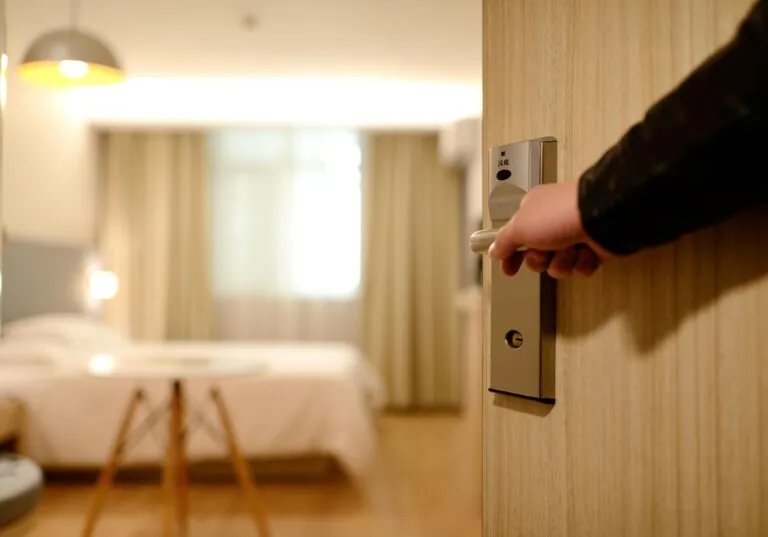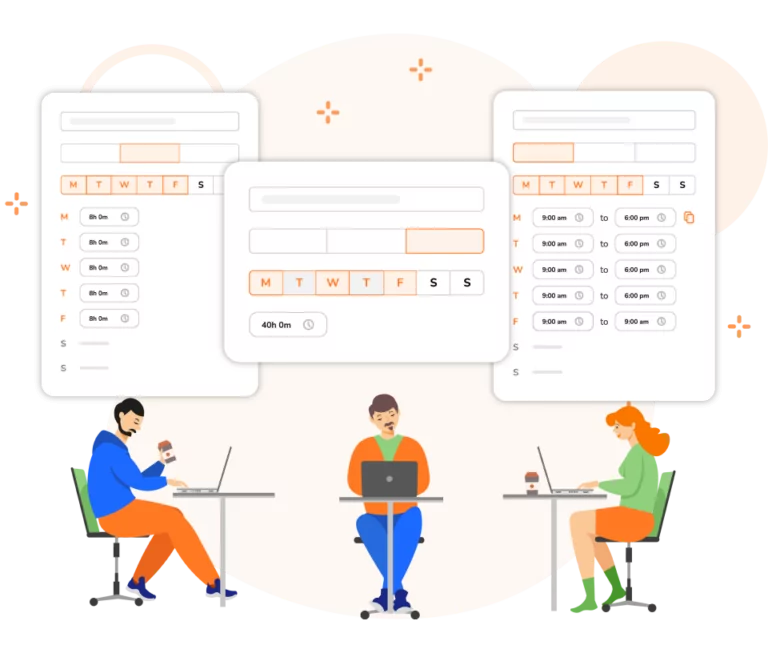
Photo by Pixabay
Background
A well-established management company in Palawan, specializing in hospitality services and fostering regional tourism growth.
The company operates various services, including transportation, accommodations, and dining establishments, while also engaging in community-focused initiatives to support local welfare.
For confidentiality reasons, the company name is not disclosed.
Challenges with the Old System That Made the Company Change
The company’s fast-paced, multi-location environment required a more efficient solution to manage their large workforce, streamline scheduling, ensure compliance, and optimize payroll. Here are the key challenges they encountered that led to the need for a more advanced time tracking system:
1# Inaccurate Time Tracking for Shift Workers:
The company operates in a 24/7 environment with employees working various shifts in restaurants, bars, hotels, and catering services. The old time tracking system was prone to inaccuracies, particularly for shift workers who would manually log in and out. These errors led to discrepancies in pay and complicated payroll processes. A more sophisticated system with automatic clock-in/out and accurate shift tracking would ensure that all working hours are properly logged, reducing discrepancies and ensuring timely, accurate pay for all staff.
2# Difficulty Managing Staff Across Multiple Locations:
The company’s workforce is spread across multiple restaurant and hotel locations, each with its own schedule and staffing requirements. The old system lacked the ability to centralize scheduling, making it difficult to coordinate across locations. Managers often had to manually track schedules and payroll for each site. A new solution with centralized scheduling, location-specific time tracking, and real-time visibility across all locations would allow for better coordination, reducing scheduling conflicts and improving staffing efficiency across the company’s diverse operations.
3# Challenges with Managing Temporary and Part-Time Staff:
Hospitality businesses like the company often hire part-time and temporary staff to manage fluctuations in customer demand. The old system was not flexible enough to handle the dynamic scheduling needs of part-time staff or temporary employees, often leading to issues with inaccurate time tracking or overstaffing. A modern solution with customized rules for part-time and temporary workers, easy-to-use shift scheduling features, and real-time attendance monitoring would streamline the process and help ensure more efficient staffing levels, particularly during peak periods.
4# Time-Tracking Fatigue and Low Employee Engagement:
Employees working in high-stress, fast-paced environments like restaurants and hotels were often disengaged with the time tracking system. The old system was manual and not user-friendly, leading to time-tracking fatigue, missed clock-ins, and delayed entry of work hours.
5# Central Record Keeping and Employee Data Management:
With multiple locations and a large, diverse workforce, the company found it difficult to maintain consistent, centralized records of employee time and attendance. The old time tracking system lacked a unified database, making it challenging to access or update employee records across locations. This also led to discrepancies in payroll, scheduling, and compliance monitoring.
The Company’s Time Tracking Key Requirements
The company had several critical requirements for a time tracking solution to address the complexities of its operations, ensuring seamless integration and operational efficiency. These key requirements included:
- Scheduling Flexibility – Manage varying shift patterns for restaurant and hotel staff.
- Mobile Time Tracking – Employees in the hospitality sector can clock in and out using their phones.
- Geolocation Tracking – Accurately track employees’ hours across multiple venues and locations.
- Centralized Record Keeping – Store and access employee data from a single cloud-based system.
- Ease of Use – A simple software for the company’s various roles and positions to easily adapt to.
Why the Company Chose Jibble Time Tracking
When it came time to find a solution to track the team’s time, Jibble stood out as the perfect fit. Here’s why the company decided to integrate it into their workflow:
1# Remote Time Tracking:
With employees working in multiple locations, including hotels, resorts, and event venues, the company needed a flexible time tracking system that could accommodate various work environments. Jibble’s mobile app enabled staff to clock in and out from anywhere, ensuring accurate time records while providing managers with real-time data on attendance.
2# Geofencing for Location-Based Timekeeping:
Given the nature of their business, the company needed to ensure that employees were clocking in only when physically present at designated locations, such as client venues or hotel properties. Jibble’s geofencing feature offered an easy solution to ensure accurate time tracking and improved accountability across all locations.
3# Streamlined Shift Management:
Managing time and attendance across multiple sites was challenging for the company. Jibble’s customizable grouping features allow for the allocation of schedules while also ensuring accurate time tracking that is consistent with various job roles.
How Was the Onboarding Process?
The company’s onboarding process for Jibble was rolled out over a 4-week period, focusing primarily on their restaurant and hotel staff. The process began with a detailed assessment of the company’s needs, especially for employees working across multiple shifts and locations. Jibble’s mobile time tracking feature was critical in allowing their staff to clock in and out based on the specific location where they were working.
During the first two weeks, the system was configured to integrate location-based time tracking, followed by the deployment of the mobile app for employees. In the third week, training sessions were conducted, ensuring staff could easily navigate the app and log their hours accurately.
By the fourth week, the system was integrated with payroll, resulting in a more efficient payroll cycle and less administrative overhead for the company.
The Benefits Immediately Identified Post Onboarding
Following the onboarding process, the company quickly experienced several key benefits that significantly contributed to its sustainable improvement, including:
1. Enhanced Time Tracking Across Locations: With multiple hotel locations, the company used Jibble to track employee hours at each site, ensuring accurate payroll management.
2. Increased Operational Efficiency: Real-time time tracking helped the company manage staff more effectively, reducing downtime and improving operational flow.
4. Better Workforce Engagement: Employees were able to track hours easily through Jibble’s mobile interface, increasing adoption and engagement.
Main Method of Jibbling In and Out
The key methods for clocking in for the Company is through:
- Mobile App (Geofencing): The company’s staff use Jibble’s mobile app for clocking in/out at multiple hotel locations. Geofencing ensures that employees can only clock in when on-site at a specific location, enhancing accountability.
- Desktop: Managers use the desktop version to oversee time-tracking across all hotel properties.
- Kiosk (Face Recognition): The company’s staff headquarters staff use the kiosk set up to log in through face recognition scans.


